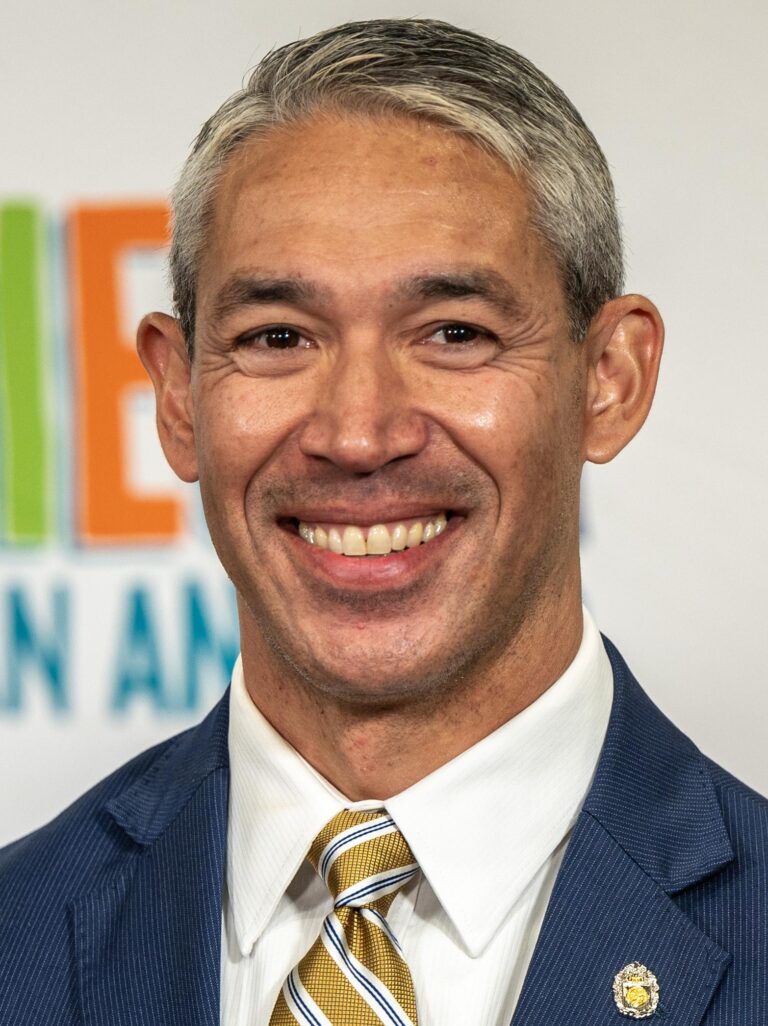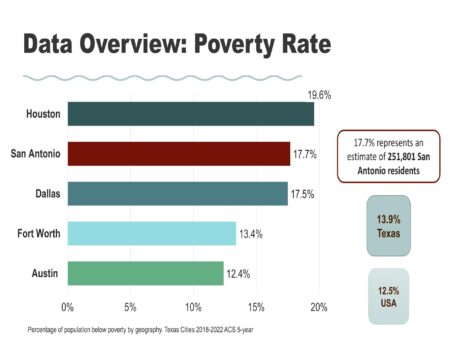Education as a Key Driver for Latino Advancement in San Antonio
San Antonio’s municipal leadership is placing education at the forefront of efforts to empower its Latino residents. Mayor Ron Nirenberg recently articulated the importance of expanding educational access and resources as a fundamental strategy to reduce social and economic inequalities impacting the city’s substantial Latino population. His statements underscore a commitment to leveraging education as a transformative tool for equitable development and community upliftment.
Central to this vision are initiatives designed to:
- Raise graduation rates among Latino students
- Increase college enrollment and completion within the Latino community
- Enhance workforce preparedness aligned with emerging sectors
| Program | Anticipated Outcome | Implementation Period |
|---|---|---|
| Expansion of Dual-Language Programs | Improved bilingual skills and cultural inclusivity | 2024-2026 |
| Upgrading STEM Education Resources | Greater student engagement in technology and science fields | 2024-2025 |
| Increased Scholarship Opportunities | Expanded access to higher education for Latino youth | Starting 2024 |
Tackling Educational Inequities to Narrow the Latino Achievement Gap
Addressing the persistent achievement gap among Latino students demands focused investment and community collaboration. San Antonio’s strategy includes broadening access to quality early learning programs, strengthening bilingual education, and increasing the presence of Latino educators to better reflect the student population. These measures aim to cultivate an inclusive academic environment where all students, regardless of economic status, have the opportunity to excel.
Highlighted initiatives encompass:
- Enhanced funding for schools in predominantly Latino neighborhoods facing resource shortages
- Mentorship networks linking Latino students with role models and professionals from similar backgrounds
- Culturally relevant curricula that honor students’ heritage and lived experiences
| Initiative | Expected Benefit | Duration |
|---|---|---|
| Early Learning Programs | Increase kindergarten readiness by 25% | 2 years |
| Dual-Language Program Expansion | Enhance bilingual proficiency by 30% | 3 years |
| Mentorship Initiatives | Raise graduation rates by 15% | 4 years |
Strengthening Community Support and Policy for Latino Students
Local authorities advocate for expanding mentorship programs that connect Latino youth with culturally aligned professionals, fostering academic motivation and career aspirations through meaningful relationships. There is also a strong push to enrich bilingual education and integrate culturally affirming curricula that validate Latino students’ identities, thereby enhancing engagement and retention.
Policy recommendations from community stakeholders include increased investment in after-school initiatives, mental health services, and college readiness programs tailored to Latino families. Additional proposals focus on:
- Broader availability of scholarships and financial literacy workshops
- Stronger collaborations between educational institutions and Latino community organizations
- Improved data tracking on Latino student outcomes to inform targeted support
| Program | Objective | Target Audience |
|---|---|---|
| Dual-Language Mentorship | Enhance academic and professional goals | Middle and high school students |
| Cultural Curriculum Development | Boost student engagement and cultural pride | K-12 Latino learners |
| Scholarship and Financial Aid Workshops | Increase college accessibility and affordability | High school seniors and their families |
Early Childhood Education Investment as a Strategic Long-Term Approach
San Antonio’s policymakers stress that investing in early childhood education is a foundational strategy that significantly influences the future economic and social well-being of the Latino community. Research consistently shows that children exposed to quality early education demonstrate enhanced cognitive development, social skills, and higher rates of academic success. For a city where Latinos represent a large demographic segment, these early educational interventions are crucial for closing opportunity gaps and promoting sustained upward mobility.
Mayor Nirenberg highlights several critical elements:
- Availability of affordable, high-quality preschool programs
- Engagement initiatives involving families and local communities
- Investment in professional development and resources for early childhood educators
| Benefit | Effect on Children | Long-Term Advantage |
|---|---|---|
| Enhanced Literacy | Development of early reading skills | Improved academic performance |
| Social Skill Development | Better interpersonal communication | Stronger community connections |
| Emotional Resilience | Increased coping abilities | Reduction in behavioral challenges |
Conclusion: Education as a Foundation for Latino Prosperity in San Antonio
As San Antonio continues to evolve as a dynamic and diverse urban center, the mayor’s focus on education as a cornerstone for Latino advancement offers a clear roadmap for inclusive growth. With Latinos comprising a significant share of the city’s population, prioritizing equitable access to quality education is essential to unlocking new opportunities and driving economic progress. This call to action serves as a powerful reminder that bridging educational disparities benefits not only the Latino community but also the broader social and economic fabric of San Antonio and its future.




